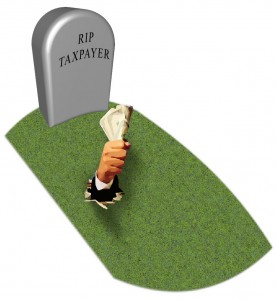Death Tax
Death and Taxes
Estate Planning
Death and taxes always create negative connotation whether as an area of life circumstances or part of Federal income tax. As even death is taxed by the U.S. government, death and taxes become the only two definite things in life. Death Tax is a common term used by policy makers which are also referred as Federal Income Tax, Federal Death Tax, Death Duties, and Inheritance Tax. They all refer to the tax imposed when transferring an individual asset at death based on the guidelines created by the United States Internal Revenue Service, or IRS. It is classified under the federal death tax which is an individual right to transfer assets or properties on death. To be specific, the death tax is required on individual asset or properties after it was transferred to an heir or beneficiaries of a dead person. Any valuable possession of an individual passed through a will of a deceased person should be computed with death tax exemption before the actual tax rate. The tax is assessed as the death tax because a death of an individual generates the transfer of assets or properties to another living individual. It means that death tax assesses the assets or properties of a dead individual rather than the value that received by the inheritor. The computation does not depend on the number of inheritors and the portion received as inheritance.
The death tax imposed by the U.S. government on an individual asset or properties transferred after death as part of inheritance as written in the will of the deceased. The cost of the transfer of assets or properties due to an inheritance is charged to the heir or beneficiary. The asset or properties were computed at the current value at the time of the death of the owner, if it exceeded the allowed exemption then the computed value will be subjected with death tax which covers the inheritance duties. The value of personal property, business assets and investments are summed up to determine the estate tax that an individual need to settle. The previous policy of the Internal Revenue Service computed the total estate of an individual with over $1 million value is tax exempt then all additional assets are taxed at the rate of 55%. In year 2010, the tax percent went down to 0% and the federal death tax was set at 45% based on the budget plans under the governance of President Obama. It resulted to the exemption of $3.5 million inheritance from a deceased individual is being taxed at 45%. While the value of the exemption for a married couple increased to $7 million. The current state of the U.S. economy is a clear indication that the federal income tax will not decrease not even abolished.
70% of U.S. voters wanted the death tax permanently abolished because it affects all people, including the millionaires and billionaires. It forces the individuals without cash for tax payment to sell assets or even businesses to be able to pay the death tax. People who inherited assets or properties which are valued beyond allocated exemption should settle the death tax within 9 months from the death of the decedent. A million dollar exception may seem like a huge amount of money but computing the total value of an individual possession such as a primary home, vacation home, bank accounts, business bonds, stocks and assets, titled lands, machineries, insurances, jewelries, paintings, motor vehicles, furniture, retirement investments and other valuables will sum up into a large amount of taxable portion. To be specific, all properties categorized as personal, business, and investments are taxable after deducting the allowed exemption. All assets and properties will surely be assessed at a fair market dollar value and an individual or a family need to settle certain percent in excess of the allocated exemption. This simply means that an individual is obliged to pay the U.S. government with percentages of every dollar inherited from a dead benefactor. For family businesses with loan for business operation, the rate of the tax plus the loan interest becomes the tax due.
The federal death tax which is required to the heir of the assets or properties of a deceased person is rightfully imposed by only a few states. They are the states of New Jersey, Iowa, Pennsylvania, Kentucky, Nebraska, Indiana and Maryland. Where in each state formulated own guidelines for the death tax exemption and percentage computation. Although the states of Tennessee and Oregon refused the federal death tax, both countries imposed inheritance tax based on the guidelines of estate tax. It collects taxes based on the total value of inherited assets or properties rather than collecting from the individual who received the inheritance. Be wise when accepting a huge value of inheritance, either turn it as a blessing or a curse.
To learn more about federal income tax after you die Click Here





